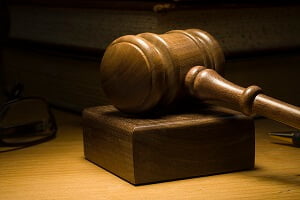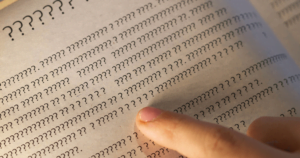 Personal injury law in Indiana exists to make the victim financially whole again after an accident. The injured person has a legal right to recover economic and noneconomic expenses like medical bills, lost income from inability to work and loss of use due to a disability that an accident causes. Thanks to the Indiana state personal injury laws, those expenses are just a few things an individual may be able to recover in a civil case.
Personal injury law in Indiana exists to make the victim financially whole again after an accident. The injured person has a legal right to recover economic and noneconomic expenses like medical bills, lost income from inability to work and loss of use due to a disability that an accident causes. Thanks to the Indiana state personal injury laws, those expenses are just a few things an individual may be able to recover in a civil case.
The state legislature also ensures that victims of particularly extreme forms of negligence or fraud receive a sort of justice through the court system. This justice comes in the form of exemplary damages, which are more commonly referred to as punitive damages. Punitive damages are additional damages awarded to victims that exist to punish the defendant (at-fault party) for the malicious or reckless acts that led to the accident and your subsequent injuries.
However, the award is not given unless the victim’s attorney can satisfy certain considerations set forth in state law (Indiana Code (IC) 34-51-3).
If you have been involved in an accident that you believe was the result of malicious or reckless acts, it is in your best interest to seek legal advice from an experienced South Bend personal injury lawyer. During a free consultation with one of our skilled lawyers, he or she will be able to evaluate your situation and determine if pursuing punitive damages is an option for you. Call us today to learn more about your legal rights.
Burden of Proof
Proving that the defendant was liable for your injuries may be enough to get your medical bills reimbursed, but it is not enough to prove a case for punitive damages. Punitive damages are only awarded in Indiana when the defendant has been malicious, reckless, and/or grossly negligent in his or her behavior.
For example, your neighbor may have killed the tree on your property. However, if it is accidental, there is no case for punitive damages. A neighbor who planned to damage the tree through reckless behavior (driving into the tree with a car while drunk) could potentially be liable for punitive damages.
Another example would be if a landlord was aware of an electrical hazard due to a building inspection that was documented, but the landlord failed to take action to resolve the issue and the electrical hazard caused a fire that injured someone. The landlord could have blocked off this area instead of fixing it to avoid visitors suffering injuries. The landlord’s failure to act could be seen as grossly negligent because it put the visitors’ lives at risk. In this case, the victim can file for punitive damages to deter the landlord from doing the same thing in the future.
However, the victim, also known as the plaintiff, has the responsibility to prove that the neighbor or landlord was aware of his or her wrongdoing to recover punitive damages. A victim must show with clear and convincing evidence that his or her injuries were the result of the defendant’s malice, reckless or negligent actions.
Our lawyers at Pfeifer, Morgan & Stesiak can fully investigate your situation to build a strong case for why you deserve punitive damages. We know how to build a strong argument for why punitive damages are necessary, given the at-fault party’s actions.
Payment of Punitive Damages
If the jury decides to award punitive damages, the at-fault party is required to pay these damages to the clerk of the court where the legal action is pending. Once the clerk of the court receives the money, he or she will pay the victim 25 percent of the award. The other 75 percent is paid to the treasurer of the state. The treasurer deposits the money into the violent crime victims compensation fund (IC 34-51-3-6(c)(2)).
Award Caps and Restrictions
Indiana has a cap on the amount of punitive damages you are able to pursue. This means the extravagant punitive damage awards that juries have awarded in past years and in other states are not allowed in Indiana. Under IC 34-51-3-4 punitive damages awards cannot be larger than three times the damages awarded for your injuries or $50,000, whichever amount is greater.
However, IC 34-51-3-3 restricts the judge from informing the jury of the punitive damage limits. This is why Indiana law (IC 34-51-3-5) gives the judge in the case the power to reduce any jury award that exceeds the punitive damage limits.
The limitations on punitive damages should not deter anyone from seeking punitive damages in a case where they are warranted. Remember, punitive damages are used to punish the defendant. Not pursuing them could leave behavior unpunished and others vulnerable to the defendant’s malicious, reckless or negligent behavior in the future.
Contact a trusted lawyer at Pfeifer, Morgan & Stesiak for assistance on your personal injury case. Our South Bend personal injury lawyers will work hard to not only pursue the monetary compensation you deserve, but also to seek punitive damages when appropriate. Planning a lawsuit and having the burden of proof puts a lot on a victim’s plate, which is why having an attorney can be so important.
Call us today for your free case evaluation. We take our cases on a contingency fee basis, so there are no costs to you unless we win.
Call (844) 678-1800 to get started.











